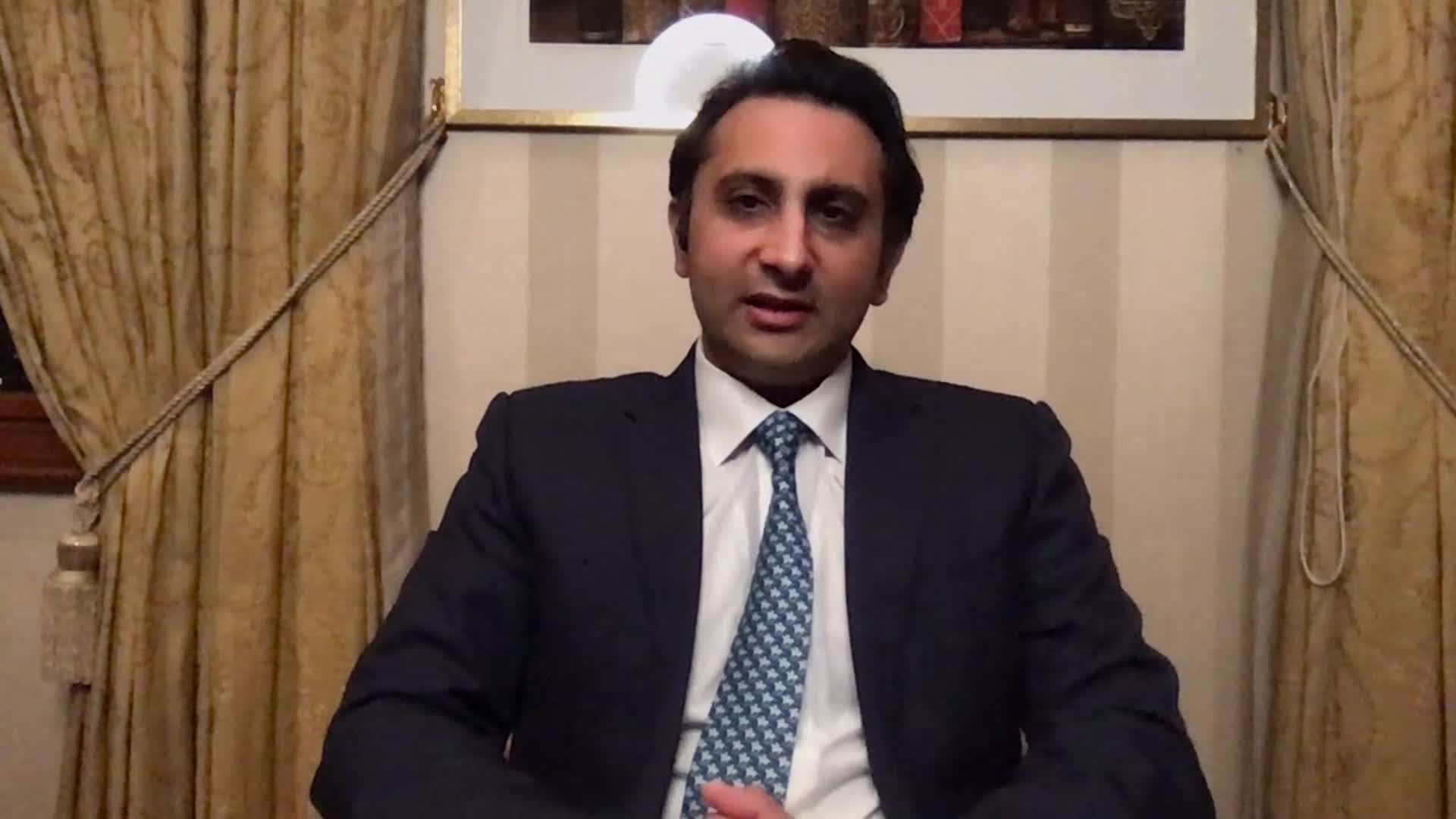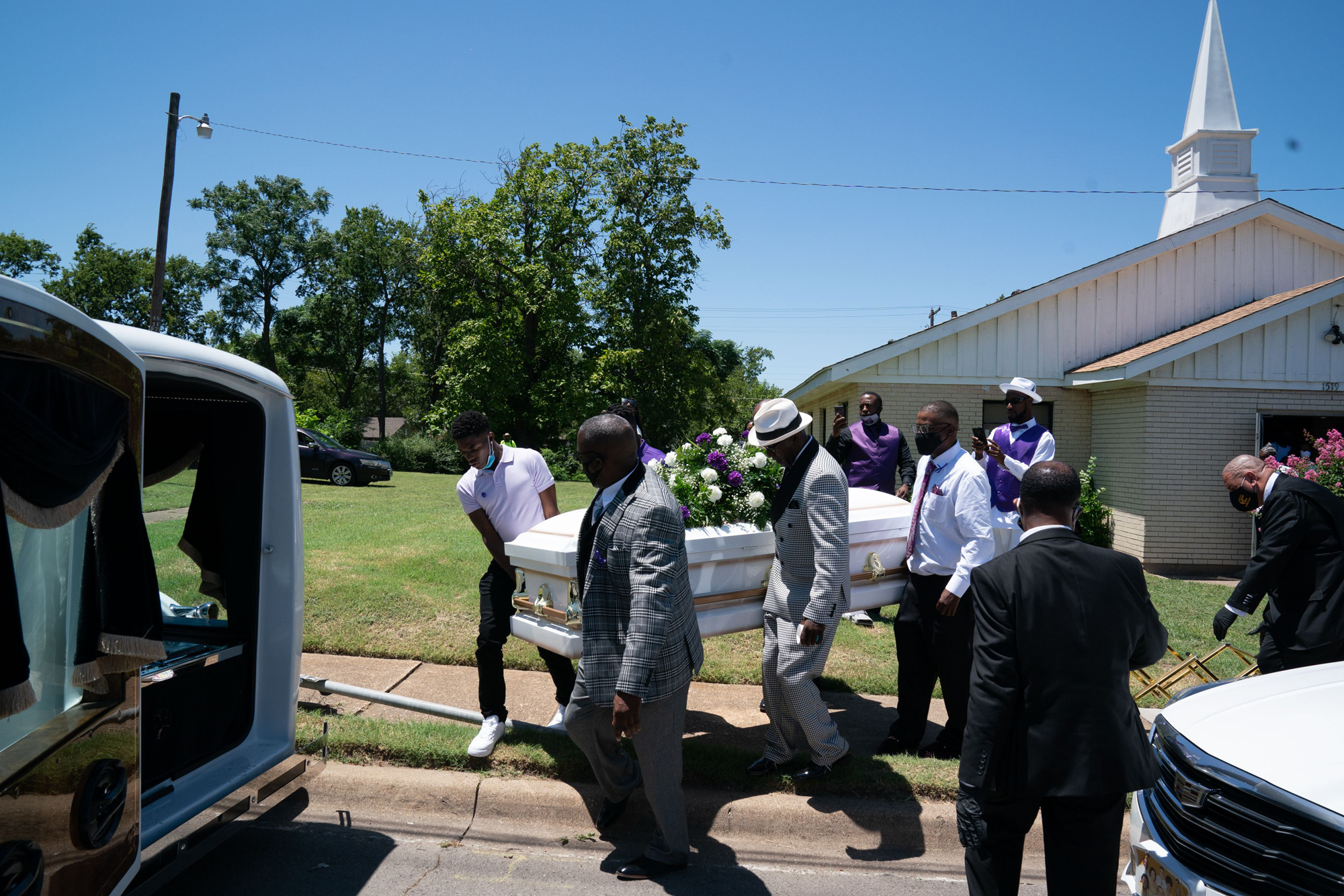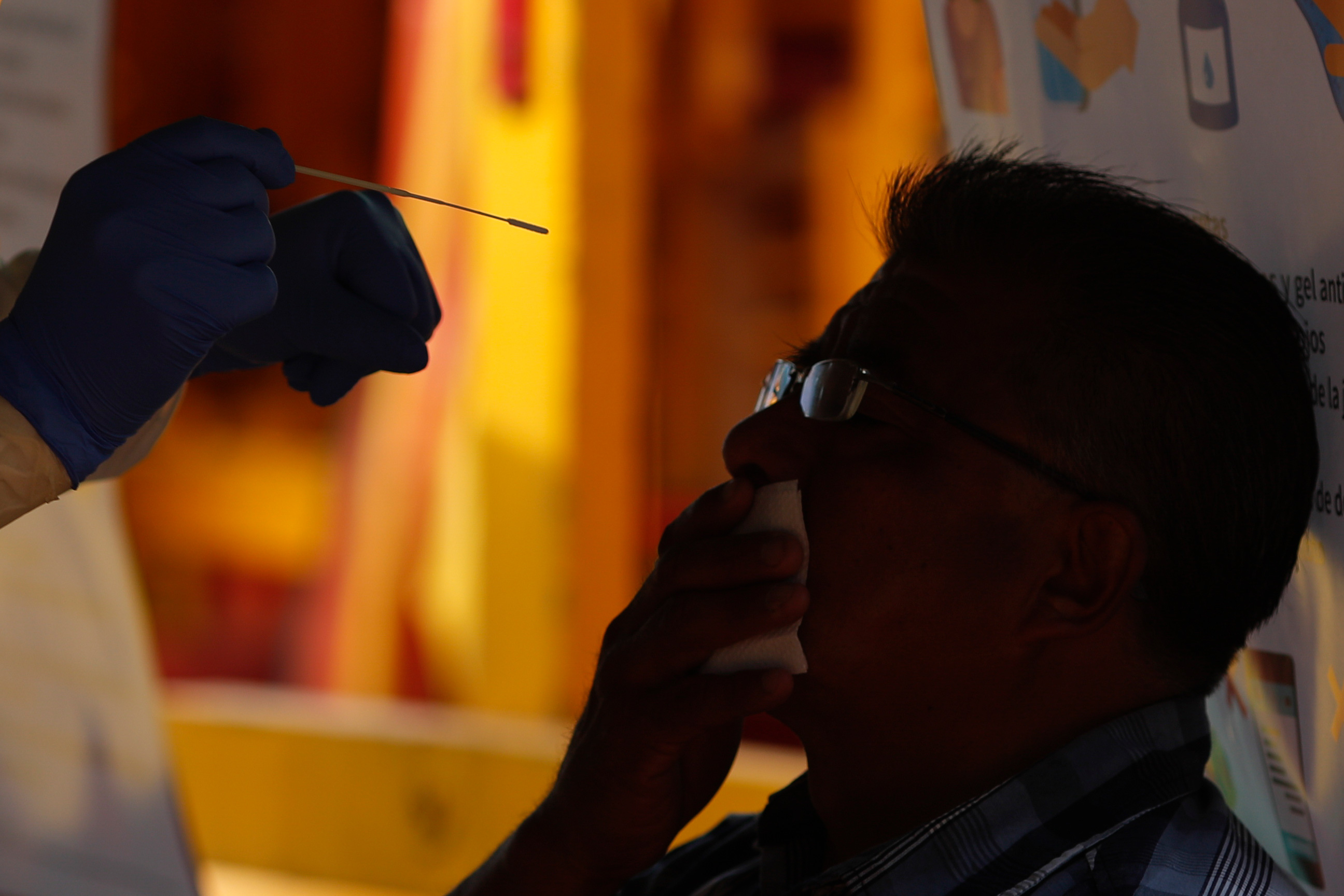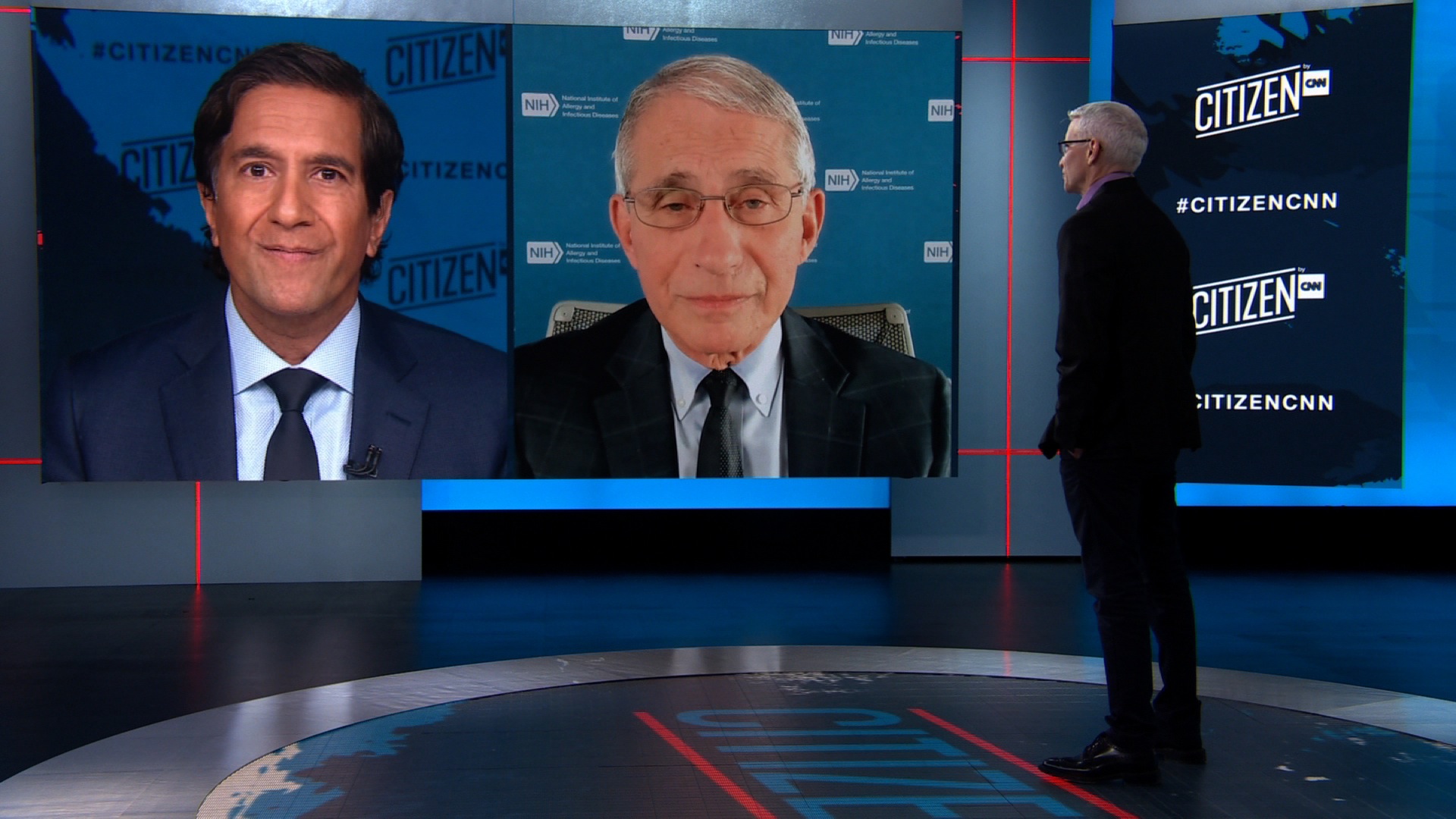Vaccinating whole world against Covid-19 won't happen until 2024, manufacturer says
From CNN's John Bonifield
 Adar Poonawalla, CEO and executive director of the Serum Institute of India, speaks during an interview on September 22. CNN
Adar Poonawalla, CEO and executive director of the Serum Institute of India, speaks during an interview on September 22. CNNIndia's Serum Institute, the world's largest vaccine manufacturer, says it will take until 2024 for the whole world to get vaccinated against the novel coronavirus.
Poonawalla said some of the challenges of getting vaccines from the point of research and approval to administering them to patients include scaling up manufacturing of the vaccines and raising billions of dollars to fund procurement of the necessary doses.
He said administering the vaccines in certain complex geographies and countries is also a challenge.
The Serum Institute of India is working with five Covid-19 vaccine developers and is gearing up to make hundreds of millions of doses. But even then, the vaccine supply will only go so far in the short term.
Take India, for example, with a population of 1.4 billion.
"By July, August next year, even if we were to produce 400 million does, they're still going to struggle to vaccinate everyone using those doses,” Poonawalla said.
More than 200,000 people have died from coronavirus in the US
 A casket carrying the body of Lola M. Simmons is placed into a hearse following the funeral service at the Denley Drive Missionary Baptist Church in Dallas, Texas on July 30. Bryan R. Smith/AFP/Getty Images
A casket carrying the body of Lola M. Simmons is placed into a hearse following the funeral service at the Denley Drive Missionary Baptist Church in Dallas, Texas on July 30. Bryan R. Smith/AFP/Getty ImagesThe United States has surpassed 200,000 deaths from coronavirus, according to Johns Hopkins University.
The first death from coronavirus in the US was reported on Feb. 29.
Fifty four days later, on April 23, the US reported 50,000 deaths from Covid-19. Just 29 days later, on May 23, the nation crossed 100,000 deaths.
It took 65 days to reach 150,000 deaths on July 28. It has taken 55 days to reach 200,000 deaths.
CNN's Dr. Sanjay Gupta remembers those who have died from coronavirus:
People at any age with underlying conditions are in the risk group for serious disease, Fauci says
From CNN Health’s Naomi Thomas
It isn’t just the elderly who are at risk of serious illness when infected with the novel coronavirus. Younger people with underlying conditions are also in that high risk category, Dr. Anthony Fauci, director of the National Institute of Allergy and Infectious Diseases, told CNN’s Dr. Sanjay Gupta during the CITIZEN by CNN event on Tuesday.
“It isn’t just the elderly and those with underlying conditions,” Fauci said. “Because it can be serious in young people.”
Quantitatively, “for sure,” it’s much less serious as a group in young people, he said, but it is important to remember that there are many people in all age groups who have underlying conditions.
If you’re a younger person with an underlying condition such as diabetes, obesity, hypertension or heart disease, “You are in the risk category for a serious disease,” he said.
The people with underlying conditions make up a substantial proportion of the population, Fauci said.
“So, don’t just think the elderly are the problem,” he said. “True, people with underlying conditions, but those are not just isolated to the elderly. There are plenty of younger people who have underlying conditions that put them at risk.”
Fauci's comments come a day after President Trump falsely claimed the virus affects "nobody young."
"We now know the disease; we didn't know it. Now we know it — it affects elderly people with heart problems and other problems. If they have other problems, that's what it really affects. In some states, it affects thousands of people, nobody young. Below the age of 18, like, nobody," Trump said at a rally in Swanton, Ohio, last night.
Watch:
New York adds 5 states to quarantine list
From CNN's Melanie Schuman
New York has added five states to its quarantine list meaning persons traveling from these states should now quarantine for 14 days upon arrival.
Those states are:
New Jersey and Connecticut work in lockstep with New York and it is expected those states will announce the same additions to their quarantine lists.
Some context: The metric used to determine which states are added or removed is an area with a positive test rate higher than 10 per 100,000 over a seven-day rolling average of an area with a 10 percent or higher positivity rate on a rolling average.
New York remains under one percent positivity rate at 0.89%, according to a press release from the governor’s office.
There were an additional 754 cases identified Monday and three deaths.
Remember: That number were released by the state’s public health agency, and may not line up exactly in real time with CNN’s database drawn from Johns Hopkins University and the Covid Tracking Project.
Mexico has surpassed 700,000 coronavirus cases
From CNN's Natalie Gallón in Mexico City
 A doctor prepares to take a nasal swab for a COVID-19 test in Mexico City on September 10. Rebecca Blackwell/AP
A doctor prepares to take a nasal swab for a COVID-19 test in Mexico City on September 10. Rebecca Blackwell/APMexico now has more than 700,000 confirmed Covid-19 cases as of Monday evening, according to the Health Ministry.
The Ministry reported that 2,917 new cases on Monday put the country's total number of confirmed cases to 700,580.
Monday's official count also reported 204 additional deaths, bringing the country's overall death toll to at least 73,697.
Fauci says aerosol transmission of Covid-19 "doesn’t change anything we've been saying"
From CNN Health’s Naomi Thomas
Dr. Anthony Fauci, director of the National Institute of Allergy and Infectious Diseases, told CNN’s Dr. Sanjay Gupta during the CITIZEN by CNN event on Tuesday that you can assume aerosols are a component of Covid-19 transmission. And while the amount they contribute to the spread it isn’t yet known, it doesn’t change what has been said.
“You can make a reasonable assumption, Sanjay, that some aspect of transmission can be and is by aerosol,” he said.
“The interesting thing about that – it doesn’t change anything that we’ve been saying. It means wear your mask. It means avoid close contact. It means avoid crowds. And it means what we’ve been saying, the third or fourth thing that I mentioned to you just a little while ago, is that outdoors is better than indoors,” he said – because if there is aerosol indoors, there can be some recirculation.
Fauci said there have been some case reports of situations in places such as restaurants, “where it looks like it almost had to be an aerosol spread.”
Remember: The US Centers for Disease Control and Prevention abruptly reverted to its previous guidance about how coronavirus is transmitted, after saying on Friday that the virus can spread through the air.
Watch:
Vaccines timeline projections are just that – projections, Fauci says
From CNN Health’s Amanda Watts
 Dr. Anthony Fauci, center, speaks to Dr. Sanjay Gupta, left, and Anderson Cooper during the CITIZEN by CNN Conference on September 22. CNN
Dr. Anthony Fauci, center, speaks to Dr. Sanjay Gupta, left, and Anderson Cooper during the CITIZEN by CNN Conference on September 22. CNNDr. Anthony Fauci said “vaccines are being produced to be ready to administer – if we get a good signal that it works.” But projecting when that might be is just that: a projection.
Speaking to CNN’s Dr. Sanjay Gupta during the CITIZEN by CNN Conference on Tuesday, Fauci said, “People can have projections of what they think might happen.” But no one really knows when a vaccine will be ready, he said.
“But today, Sanjay, nobody knows what those data are because no one has looked at them. They are blinded,” he said.
Despite this, Fauci remains “cautiously optimistic” – after reading preliminary studies – that we will have a positive effect when it comes to a vaccine.
Watch:
Fauci on Trump grading his Covid-19 response with an A+: “Take a look at the numbers and make up your own mind”
From CNN Health’s Amanda Watts
Dr. Anthony Fauci said he wouldn’t grade how the United States has handled the Covid-19 pandemic – but instead said the numbers speak for themselves.
During a CITIZEN by CNN Conference on Tuesday, Dr. Sanjay Gupta read a viewer question about President Trump giving the White House response to the pandemic an A+.
Fauci refused to give his own grade, saying he doesn’t find those types of questions helpful.
“Take a look at the numbers and make up your own mind,” Fauci said. “We don't need a soundbite from me. Take a look at the numbers.”
Some context: "We're rounding the corner," Trump told "Fox & Friends" of the coronavirus during an interview Monday morning. "With or without a vaccine. They hate when I say that but that's the way it is. ... We've done a phenomenal job. Not just a good job, a phenomenal job. Other than public relations, but that's because I have fake news. On public relations, I give myself a D. On the job itself, we take an A+."
The President's comments come as the country nears 200,000 coronavirus deaths.
Watch:
Fauci says lowering the US Covid-19 baseline is “not rocket science"
From CNN’s Health Amanda Watts
“We've got to keep that slope coming down,” Dr. Anthony Fauci, the nation's leading infectious disease expert, told CNN’s Dr. Sanjay Gupta on Tuesday.
When it comes to Covid-19 cases in the US, the baseline is just too high as we head into the fall and winter, Fauci said during the CITIZEN by CNN Conference – and we’ve got to start working on that now.
To lower the levels, “You do that by looking at where you are, in what region of the country, and acting accordingly, according to the guidelines,” Fauci said. “That's not rocket science.”
“When you have weak links in the chain, and some components of society are not doing it, it just makes it very difficult for the rest,” Fauci said.
Watch:

 5 years ago
912
5 years ago
912 

